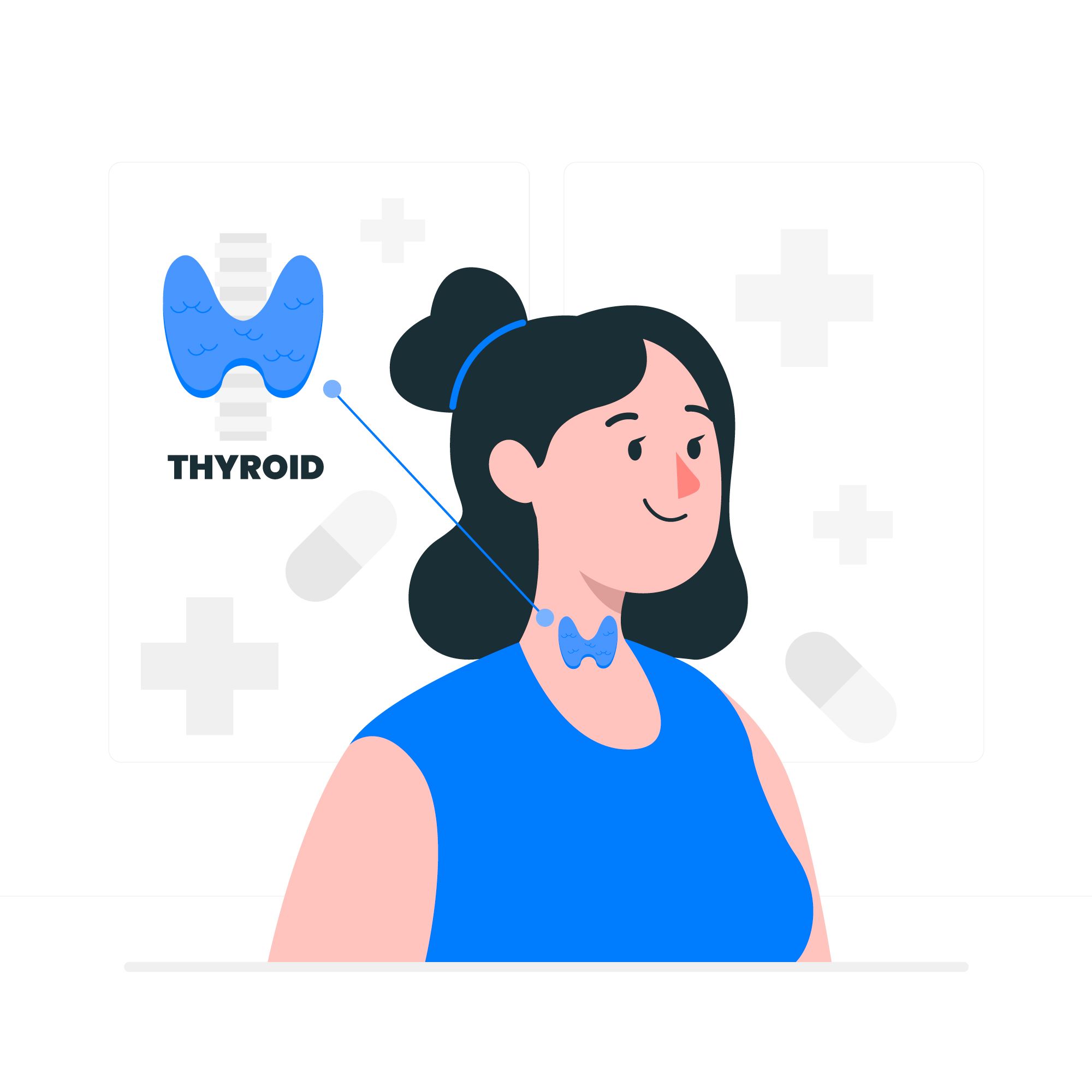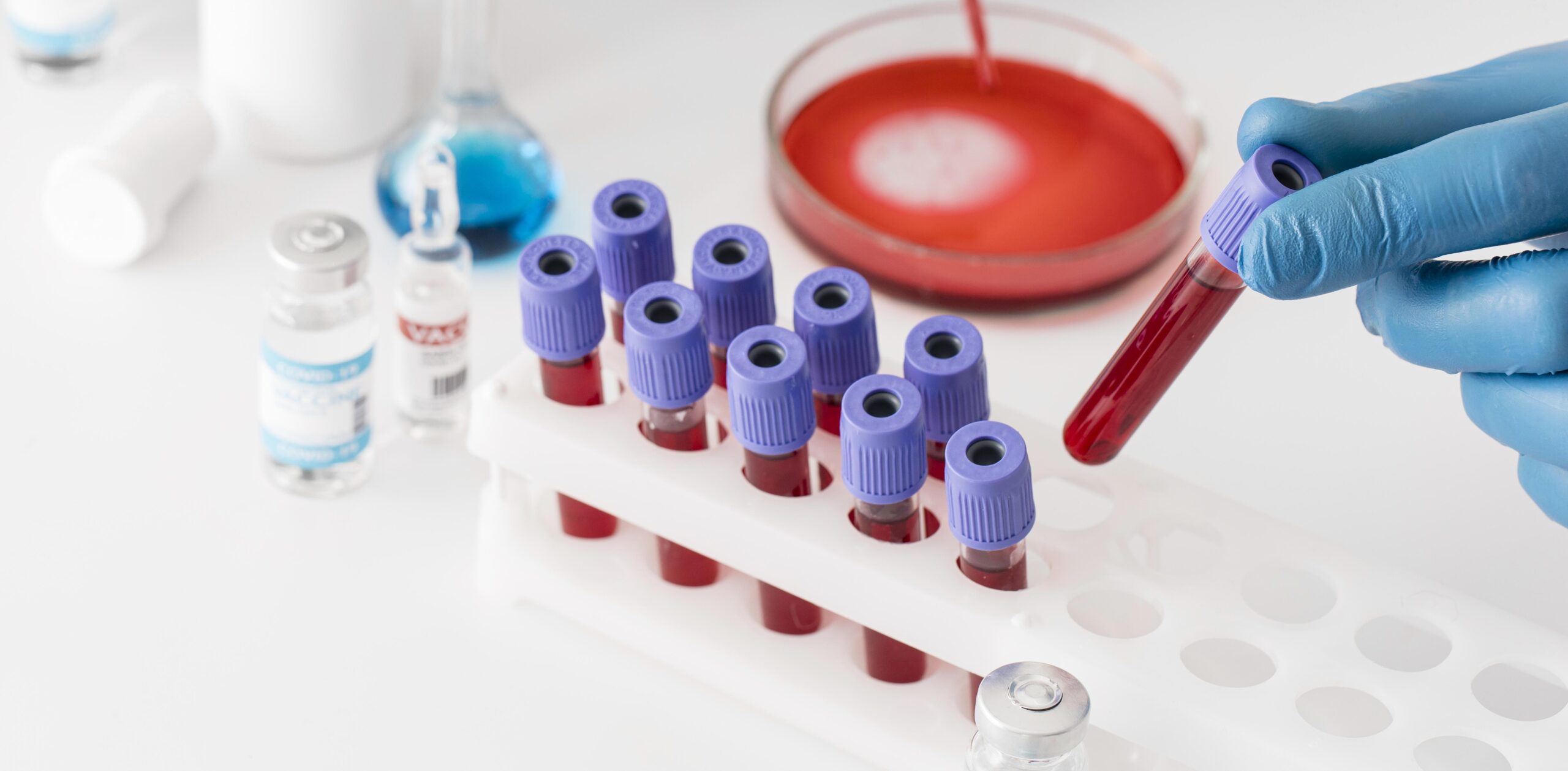Hormonal Imbalance
An excess or deficiency of a hormone in the blood can lead to a hormonal imbalance. Since hormones are essential for controlling the majority of important body functions, even a slight imbalance can have a big impact on general health and wellbeing. Hormonal imbalances can arise from a range of diseases and lifestyle factors affecting both men and women.

Causes and Risk Factors
Numerous things can lead to hormonal abnormalities, such as:
- Endocrine Gland Disorders: This category includes diseases like adrenal insufficiency, hyperthyroidism, and hypothyroidism.
- Medical Conditions: Endocrine gland cancers, either benign or malignant, diabetes, and polycystic ovarian syndrome (PCOS).
- Medications: birth control tablets, hormone replacement therapy, and specific drugs for other medical issues.
- Lifestyle Factors: Insufficient exercise, stress, poor eating, and obesity.
- Age: Hormone levels can be impacted by aging, menopause, puberty, and pregnancy.
- Environmental factors include exposure to chemicals that affect hormones, pollution, and poisons.

Symptoms
The range of symptoms associated with hormonal imbalance is contingent upon the specific hormones impacted. Typical signs and symptoms include of:
In Women:
o No periods at all or irregular periods
o Changes in weight
o Anxiety, despair, or mood swings
o Tiredness
o Night sweats and hot flashes
o Tenderness in the breasts
o Hair thinning or loss
o Acne or other skin conditions
o Diminished desire for
In Men:
- Reduced muscle mass,
- Increased body fat,
- Fatigue,
- Mood swings,
- Including anger and depression,
- Decreased libido,
- Hair loss are some of the symptoms of low testosterone levels.

Diagnosis
Making a diagnosis of hormone abnormalities entails:
- Medical History and Physical Examination: going over medical history, symptoms, and physical examination information.
• Blood tests: These determine hormone abnormalities by monitoring blood levels.
• Imaging tests: CT, MRI, or ultrasound scans to look for anomalies in the endocrine glands or malignancies.
• Extra testing: glucose tolerance testing, thyroid function tests, and other tests as required.

Treatment Options
Depending on the underlying reason, treatment options for hormonal imbalances could include:
• Hormone Replacement Therapy (HRT): Applies to disorders such as low testosterone, hypothyroidism, and menopause.
• Medicine: To address the underlying illness that is producing the imbalance; examples include thyroid medicine and insulin for diabetes.
Lifestyle Changes:
o Nutrient-rich, balanced diet
o Frequent exercise
o Stress reduction strategies
o Keeping a healthy weight
o Steering clear of poisons and pollution
- Surgical Treatment: When tumors interfere with the production of hormones.
Prevention
- Healthy Diet: Eating a balanced diet rich in fruits, vegetables, whole grains, and lean proteins is essential to preventing hormonal imbalances.
Regular Exercise: Getting regular exercise will help you stay in a healthy weight range and manage your stress.
• Stress management: Engaging in peaceful activities like yoga, meditation, and deep breathing.
• Preventing Toxins: Reducing your exposure to chemicals and environmental pollutants that can affect your hormones. - Regular Medical Check-ups: Monitoring hormone levels and overall health with regular visits to healthcare providers.

Pharmacist’s Role
Pharmacists are crucial in the management of hormonal imbalances because they:
- Offer Medication Counseling: They inform patients about the appropriate dosage and possible adverse effects of hormone-balancing drugs.
• Suggested Lifestyle Changes: offering guidance on stress reduction, nutrition, and exercise.
• Monitoring Therapy: Assisting patients in keeping tabs on their symptoms and therapy advancement.
• Cooperating with Healthcare Providers: By collaborating with other medical specialists, thorough care can be ensured.

Conclusion
The general state of health and quality of life can be greatly impacted by hormonal abnormalities. Identifying the underlying reasons, identifying the signs, and pursuing the right care are essential to properly managing these imbalances. Restoring hormonal balance and enhancing wellbeing can be achieved by pharmacological interventions, lifestyle modifications, and preventive measures. Pharmacists and other medical professionals are essential in helping patients manage their hormone abnormalities by educating and supporting them.
